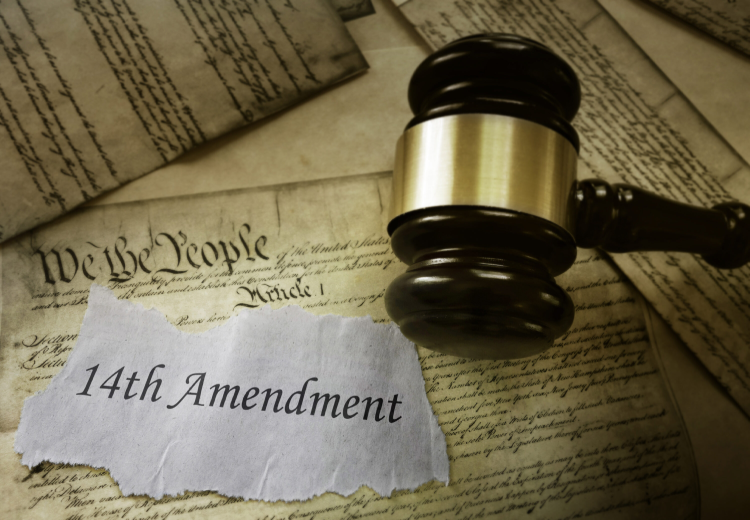PJ Media: Trump Ended Birthright Citizenship, but Legal Challenges Are Doomed to Fail
President Donald Trump was so busy on his first day in office that it’s been a challenge to cover everything that he did.
The best way to know which are the best ones to discuss is to look at the way Democrats are reacting to them. His pardon of J6 prisoners was a big one; they’re really up in arms about that. Another one was his executive order ending birthright citizenship for children born to illegal immigrants in the United States.
Now, Democrat attorneys general from 22 states are suing over the executive order.
Trump’s roughly 700-word executive order, issued late Monday, amounts to a fulfillment of something he’s talked about during the presidential campaign. But whether it succeeds is far from certain amid what is likely to be a lengthy legal battle over the president’s immigration policies and a constitutional right to citizenship.
The Democratic attorneys general and immigrant rights advocates say the question of birthright citizenship is settled law and that while presidents have broad authority, they are not kings.
“The president cannot, with a stroke of a pen, write the 14th Amendment out of existence, period,” New Jersey Attorney General Matt Platkin said.
The White House said it’s ready to face the states in court and called the lawsuits “nothing more than an extension of the Left’s resistance.”
These challenges are doomed to fail.
The assertion that the question of birthright citizenship is “settled law” oversimplifies the dynamic nature of constitutional interpretation and legislative authority in the United States. Here’s why:
Constitutional Interpretation by the Supreme Court:
Judicial Review: The Supreme Court has the power of judicial review, as established by Marbury v. Madison (1803), which allows it to interpret the Constitution, including amendments like the 14th. This means that what is considered “settled law” today can be re-examined and reinterpreted by future Courts.
Historical Precedents: Even landmark decisions like Brown v. Board of Education overturned previous “settled” interpretations regarding segregation. The Court’s decision in U.S. v. Wong Kim Ark (1898), which is often cited to support birthright citizenship, was itself an interpretation of the 14th Amendment’s jurisdiction clause, not an immutable decree.
Congressional Authority:
Legislative Power: Congress has the authority to pass laws that define or redefine citizenship, as seen with the Naturalization Acts throughout U.S. history. The 14th Amendment does not preclude Congress from further defining who is “subject to the jurisdiction” of the United States through legislation.
Previous Modifications: Congress has made laws that affect citizenship status, such as the Indian Citizenship Act of 1924, which granted citizenship to Native Americans, showing that legislative bodies can indeed influence and modify interpretations of constitutional provisions.
Presidential Influence:
Executive Interpretation: While presidents are not “kings,” they can influence policy through executive orders or by advising on the appointment of justices who might view the Constitution differently. The executive can also direct agencies like the Department of State or Homeland Security in how they interpret and apply citizenship laws, within the limits of existing legislation.
The Nature of “Settled Law”:
Evolving Interpretations: “Settled law” is a term that can be misleading because it does not mean the issue is beyond further judicial scrutiny or legislative action. Legal scholars and justices alike have acknowledged that even well-established precedents can be revisited, especially if societal values or factual understandings change.
Public and Legal Debate: The ongoing debate around birthright citizenship, particularly concerning children of undocumented immigrants, shows that the issue is not settled in public or legal discourse. This debate reflects a living Constitution, one that can be re-evaluated in light of contemporary issues and understandings.
International Comparisons:
Global Context: Many countries have changed or nuanced their citizenship laws over time, showing that what might seem “settled” can be altered through legislative or judicial means. The U.S. is not unique in potentially re-examining its citizenship policies in light of modern immigration realities.
In conclusion, while current legal interpretations might treat birthright citizenship as settled, this does not preclude future changes through judicial review, legislative action, or shifts in executive policy. The U.S. legal system is designed to be adaptable, and what is considered “settled” today can be reconsidered if compelling legal, moral, or practical arguments arise. Thus, claiming that the issue is beyond further scrutiny or change does not align with the historical or practical realities of U.S. constitutional law.

